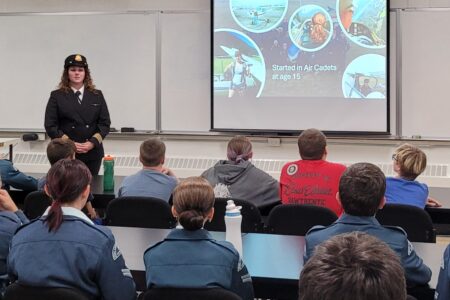Arrow Lakes Generating Station repairs could prove costly to Columbia Basin Trust benefits program
Columbia Basin Trust (CBT) may have to reduce its delivery of benefits program over the next year to pay for repairs at the Arrow Lakes Generating Station, says President and CEO Johnny Strilaeff.
A critical mechanical problem with one of the station’s turbines was discovered during an annual inspection, Strilaeff told Valemount Council during a July meeting.
The organization won’t find out if insurance will cover the cost of repairing the turbine until September, by Strilaeff’s estimation.
In a follow-up interview with The Goat, Strilaeff said the Arrow Lakes Generating Station is an important investment for the nonprofit. CBT, along with the Columbia Power Corporation, owns four hydroelectric generators: the Waneta Expansion Generating Station, the Brilliant Expansion Generating Station, the Brilliant Dam and Generating Station, and the Arrow Lakes Generating Station.
Altogether, these stations make up about 75 per cent of the CBT’s annual revenue, Strilaeff told The Goat.
“The management of these investments generates financial returns that are then available to not only support the organization, but are critically important to provide benefits to basin residents and communities,” he said.
Without the Arrow Lakes Generating Station, the CBT could lose out on millions of dollars a year, he added.
These repairs aren’t just necessary for the Trust to get a return on investment, though: according to Strilaeff, neglecting the turbine’s mechanical issues could have disastrous consequences.
“If the equipment problem that we uncovered is left unchecked, it could lead to a catastrophic failure of the unit that would damage a lot of the facility and also result in the discharge of about 8,000 litres of oil into the Columbia River,” he said. “It was not a decision point of whether or not we’d undertake the repairs, it was ‘We need to undertake the repairs.’”
Because talks with the station’s insurers are still ongoing, Strilaeff said he can’t disclose details about the exact cost of repairs, or the mechanical issue itself. However, the CBT would be looking at an eight-figure bill without insurance coverage, according to him.
This potential financial burden is not an existential threat to the organization, Strilaeff says, but it may significantly impact the Trust’s benefits delivery program over the next year.
“What’d we’d have to do for a short period of time – probably just this year – is reduce the number of dollars for what we generally describe as delivery of benefits,” he told The Goat.
“Delivery of benefits” refers to the funding streams the Trust makes available to community organizations, he added.
“We would have to potentially defer contributions to some programs, we may have to delay the start of some programs, or potentially reduce funding for programs in the current year,” he said.
“So there’s a series of different things, but ultimately it would mean our budget in the current year would have to be reduced, as that money would be required to deal with Arrow work.”
While Strilaeff says the situation is unfortunate, he sees it as emblematic of the Trust’s self-sufficiency.
“It’s a reminder to everybody that Columbia Basin Trust is a self-sustaining organization,” Strilaeff said.
“We don’t receive money from tax revenue or some other source, it has to come from our investments, and from time to time there can be challenges with those investments… It’s not something that makes me smile, but nor is it something that makes me fear for the future.”
Story is by By Abigail Popple, Local Journalism Initiative Reporter for The Rocky Mountain Goat























